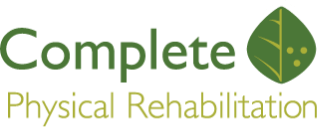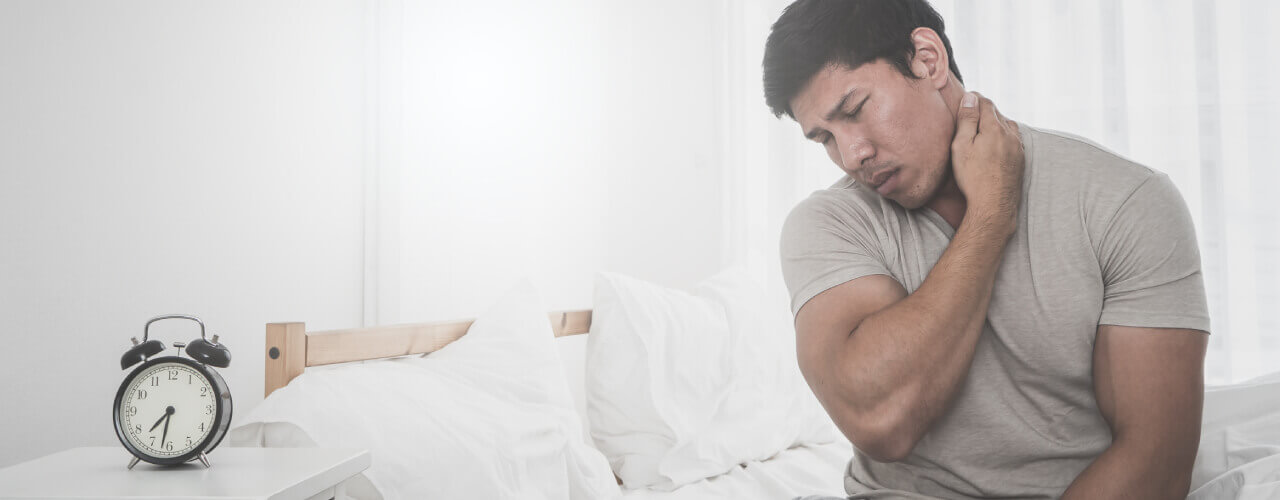You Deserve to Sleep Through the Night Again!
Have you been having trouble sleeping through the night? Or perhaps you wake up feeling achy, painful, or overall uncomfortable?
Imagine waking up, fully rested after 8 hours of sleep. As you gently awake, you move to sit up… only to be hit with an ache in your back.
The aches in your shoulders and neck quickly follow as you move, but as you go to stand up, they are eclipsed by the dull achy feeling in your hips and legs.
How can you feel so terrible after a full night’s sleep? Your mattress may be to blame. Don’t believe us?
Call our office for a free consultation with our physical therapist and find out how your mattress impacts your morning aches and pains.
Diagnose the source of your pain with physical therapy
Your first visit with a physical therapist will involve a conversation about your symptoms and medical history, as well as some simple tests.
Be prepared to answer questions about past injuries that may be contributing to your current aches and pains.
Your diet, exercise routine and daily activities will also be discussed. This is to give your therapist an idea of the possible cause or causes of your aches and pains.
You will then be given a series of tests, based on your description of your symptoms. These will involve posture and range of motion exercises, and possibly some strength and resistance tests.
When your therapist knows where you are experiencing aches and pains and has determined the likely causes, your personalized physical therapy treatment plan will be drawn up.
Ready to say goodbye to your aches and pains?
A 2008 study found that 1 in 15 to 20 cases of chronic pain can be attributed to sleep problems.
One of the biggest causes is something called long-term malpositioning. In short, your body is in the wrong position for too long.
Bad posture, poor workstation positioning, even sleeping on the wrong mattress and pillow can force your body into positions your back, hips, shoulders, neck, and head are not meant to be in.
The result is morning achiness, even if you have adequate sleep at night.
Will a new mattress help me?
The level of support you need from your mattress will depend on your typical sleep position.
People who sleep predominantly on their back will find they have low back pain if their hips rest on top of the mattress.
Side sleepers may experience feeling achy and pains in their hips and low back if their knees rest below their hips.
Stomach sleepers may wake up with back pain because their shoulders are resting behind their hips.
While properly positioned pillows can do a lot to alleviate morning aches, they cannot take the place of a mattress that supports your natural sleeping position.
How do I know if I need to change my mattress?
According to Spine Health,
“Sleeping on the wrong mattress can cause or worsen lower back pain. Lack of support from a mattress reinforces poor sleeping posture, strains muscles and does not help keep the spine in alignment, all of which contribute to low back pain.
Sleep comfort is also sacrificed if a mattress does not match one’s individual preferences. A mattress that provides both comfort and back support helps reduce low back pain, allowing the structures in the spine to really rest and rejuvenate during the night.”
While the Better Sleep Council recommends replacing your mattress every 7 to 10 years, the way you feel in the morning is a better indicator that it’s time to replace your sleep surface.
If your mattress was once comfortable but now seems to be at the root of your aches and pains, it may be time to replace it.
Physical changes like injuries, surgery and weight change can also change your body’s position as you sleep, necessitating a faster change in your mattress.
How can physical therapy relieve my pain?
While it may seem strange to consult a physical therapist for achy feelings and pains that may be caused by your mattress, their expertise may be just what you need.
As experts in posture and movement, a physical therapist can assess your body’s position while you sleep and make recommendations for the type of mattress that best supports your body.
They will also assess your posture and movement for any underlying conditions that may be contributing to your morning aches and pains.
The physical therapist may develop a physical therapy treatment plan aimed at improving your posture, strengthening your body and improving your sleep.
Ready to wake up feeling comfortable after a good night’s sleep?
With a little bit of work with a physical therapist and a little bit of time, you can say goodbye to morning aches and pains and hello to a restful night’s sleep. Contact us at Completely Physical Rehab today to learn more!

